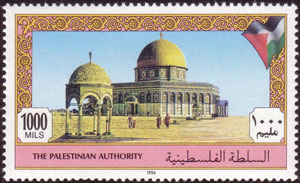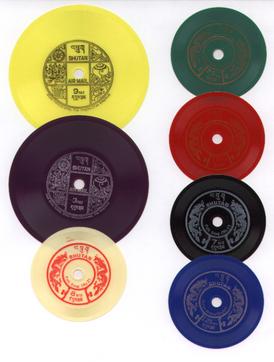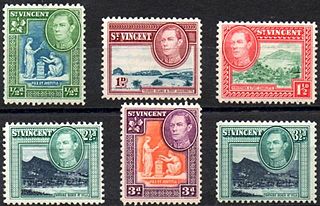
Philately is the study of postage stamps and postal history. It also refers to the collection and appreciation of stamps and other philatelic products. While closely associated with stamp collecting and the study of postage, it is possible to be a philatelist without owning any stamps. For instance, the stamps being studied may be very rare or reside only in museums.

A postage stamp is a small piece of paper issued by a post office, postal administration, or other authorized vendors to customers who pay postage. Then the stamp is affixed to the face or address-side of any item of mail—an envelope or other postal cover —which they wish to send. The item is then processed by the postal system, where a postmark or cancellation mark—in modern usage indicating date and point of origin of mailing—is applied to the stamp and its left and right sides to prevent its reuse. Next the item is delivered to its addressee.

Stamp collecting is the collecting of postage stamps and related objects. It is an area of philately, which is the study of stamps. It has been one of the world's most popular hobbies since the late nineteenth century with the rapid growth of the postal service, as a stream of new stamps was produced by countries that sought to advertise their distinctiveness through their stamps.

This is a survey of the postage stamps and postal history of the Russian Empire, the Soviet Union and the modern Russian Federation.

The Small European Postal Administration Cooperation is an association of 13 European postal authorities: Åland, the Faroe Islands, Gibraltar, Greenland, Guernsey, Iceland, the Isle of Man, Jersey, Liechtenstein, Luxembourg, Malta, Monaco, and Vatican City. Luxembourg was not originally a member of SEPAC but it joined at the end of 2006. San Marino decided to leave and is no longer a member, as of March 2020. SEPAC is smaller than PostEurop.

The postage stamps and postal history of Israel is a survey of the postage stamps issued by the state of Israel, and its postal history, since independence was proclaimed on May 14, 1948. The first postage stamps were issued two days later on May 16, 1948. Pre-1948 postal history is discussed in postage stamps and postal history of Palestine.

The Palestinian National Authority began in 1994 to issue stamps and operate postal services as authorized by the Oslo Accords.
Bangladesh first issued its own postage stamps upon gaining independence in 1971. A set of eight stamps, with various motifs including a map of the country, were issued. Shortly after, stamps in eight values were overprinted "Bangladesh Liberated" in both English and Bengali were prepared in the United Kingdom, but only three values were issued in Bangladesh.

The postage stamps and postal history of Azerbaijan describes the history of postage stamps and postal systems in Azerbaijan, which closely follows the political history of Azerbaijan, from its incorporation to the Russian Empire in 1806, to its briefly obtained independence in 1918, which it lost to the Soviet Union in 1920 and re-acquired in 1991 after the fall of the Soviet Union.
In philately, an omnibus issue is an issue of stamps by several countries with a common subject and which may share a uniform design. Omnibus issues have often been made by countries under common political control or groups of colonies due to the close co-operation required to produce the issue. Omnibus issues are to be distinguished from joint issues which are usually much smaller in scope.
Richard "Rick" Marschall is an American writer, editor, and comic strip historian, described by Bostonia magazine as "America's foremost authority on pop culture." Marschall has served as an editor for both Marvel and Disney comics, plus several syndicates.

The first postage stamps of Bhutan were issued in 1962, the same year that the first motorable road was opened. Before that there was a mail delivery system in place for official mail using mail runners, and between 1955 and 1962 revenue stamps were accepted as payment for internal mail. With the opening up of Bhutan in the early 1960s, a formal postal system was introduced.

Saint Vincent and the Grenadines, a former British colony in the Windward Islands, has produced stamps since 8 May 1861. The stamps featured either the British monarch’s head on them or the ER monogram and crown until around 1970. The stamps were printed with just "St. Vincent" until 1992 when the stamps began to print the full country name, "St. Vincent and the Grenadines".

This is a survey of the postage stamps and postal history of the Netherlands.

This is a survey of the postage stamps and postal history of Togo.

This is a survey of the postage stamps and postal history of Liberia.

This is a survey of the postage stamps and postal history of Sierra Leone.

This is a survey of the postage stamps and postal history of Niger, a former French colony that obtained independence in 1960.
This is a survey of the postage stamps and postal history of Grenada.

Filateliya (Philately) or formerly Filateliya SSSR is a Russian central philatelic magazine. It first appeared in 1966 as the monthly bulletin Filateliya SSSR and was issued by the USSR Ministry of Communications. The magazine content includes the history and design of postage stamps, and other related themes.
















